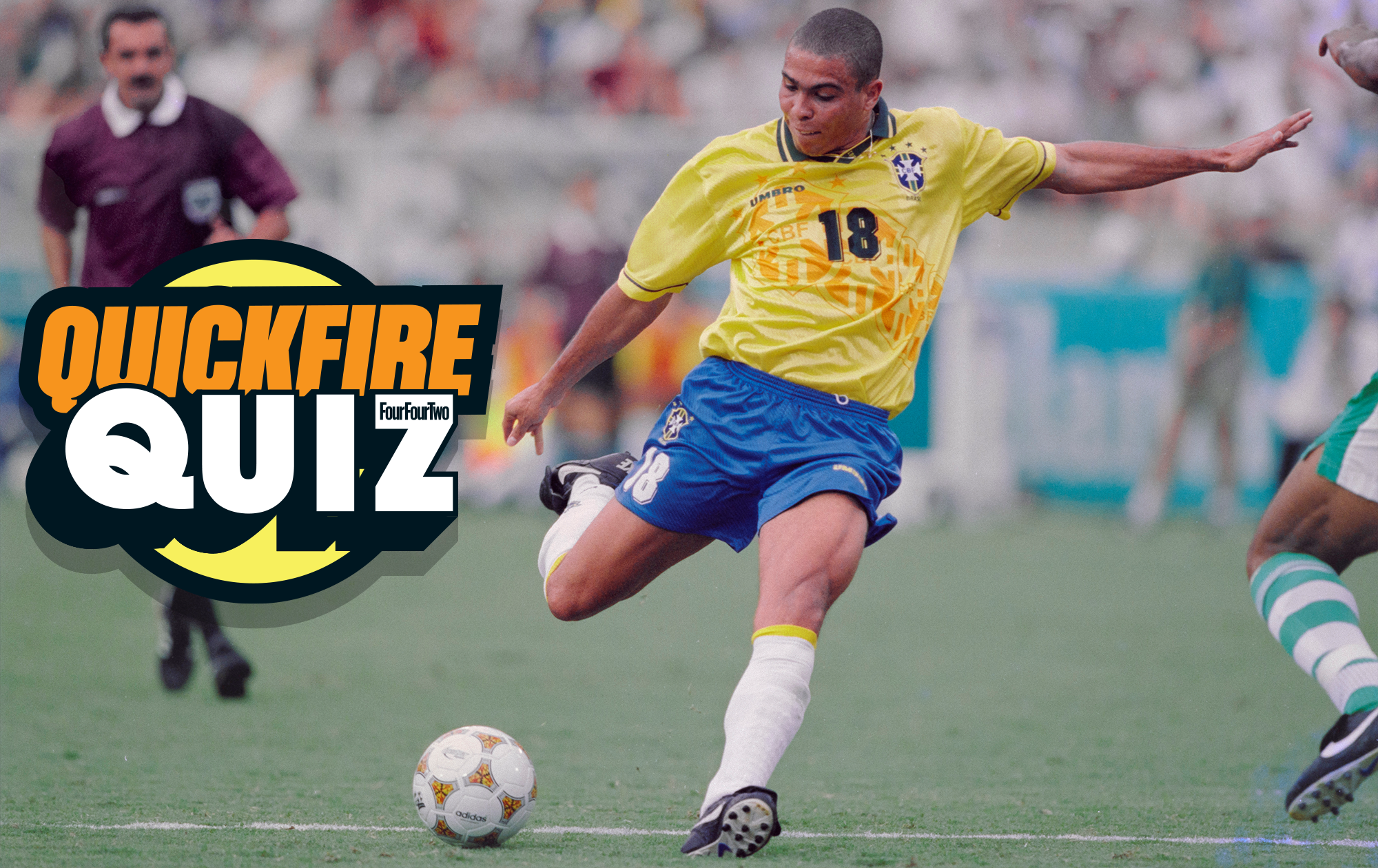Premier League good weekend, bad weekend: Spurs thunder on, Swansea sinking without trace
FourFourTwo's review of the weekend's Premier League action, as Chelsea maintained their lead and Sunderland were run over by Manchester United
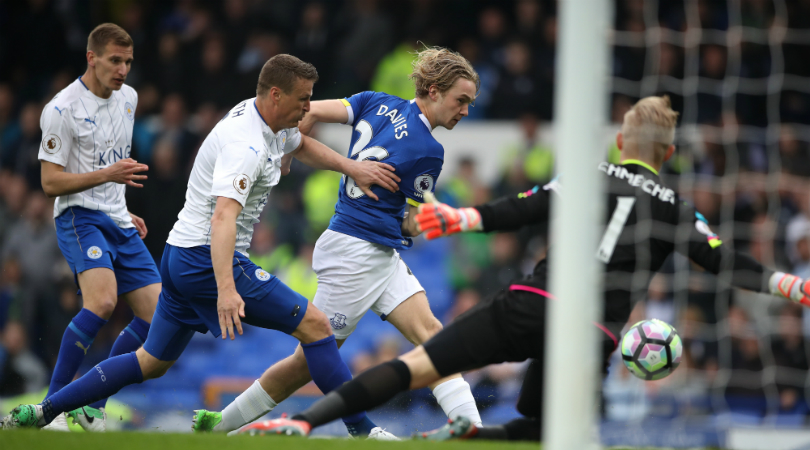
Good weekend...
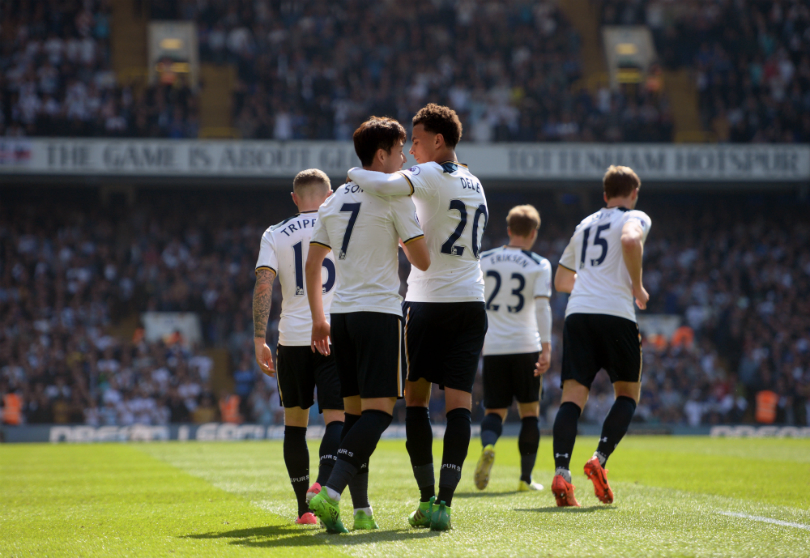
Tottenham
Saturday’s 4-0 win over Watford was the sixth time in 2017 that Tottenham have scored more than three goals in a Premier League game. They really have developed a habit of exerting their authority on lesser opponents.
What has been particularly striking about the past few months is the consistent attitude of Mauricio Pochettino’s players. Rather than being one of those sides whose application waivers from team to team, they are an equal opportunity bully who appear to relish the opportunity to dominate. Saturday was particularly impressive given that it came just two full days after that long, long night in south Wales and yet, on a lazy, sunny afternoon at White Hart Lane against an apparently-soft opponent, there was no drop in standard whatsoever. If anything, they looked more energised: content with what they achieved in Swansea, but still sure of the need to improve.
Fatigue often blunts a team’s creativity and yet here, during their third game in seven days, Tottenham played with a precision that yielded four goals and warranted many more. They thundered with purpose.
Perhaps this evidences Pochettino’s growth as much as his team’s? The last week has relied on the calculated rotation of a small squad and the clever insertion of a few particularly imperfect pieces. The result: a freshness to their quality which seems too much for most sides to bear.
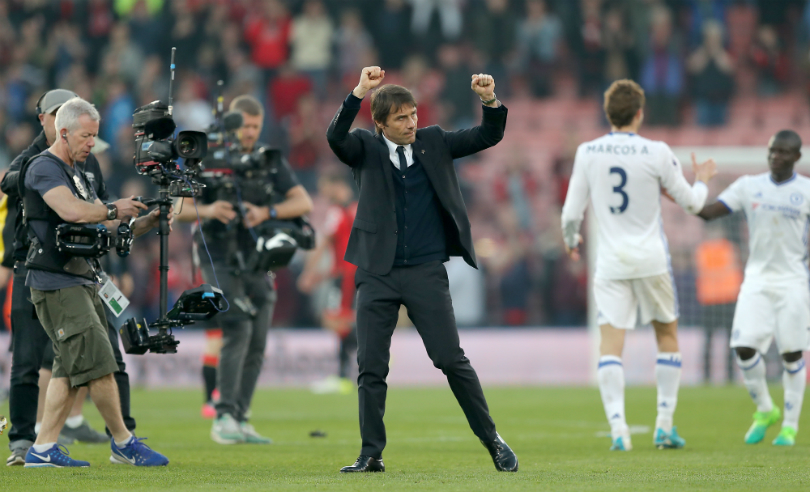
Chelsea
The best features, fun and footballing quizzes, straight to your inbox every week.
Ice cool in the warm spring sunshine. Chelsea’s win over Bournemouth didn’t teach anybody anything and neither did it reveal anything which wasn’t already known about Antonio Conte’s side. Still, all the common platitudes relating to title challenges concern emotional resilience and within that lies this team’s most significant advantage: they’ve been built to be mechanical rather than expressive, and so their style is less susceptible to pressure.
Bournemouth were hurdled without so much as a checked stride. The sun caused some initial difficulties (and nearly immortalised David Luiz on YouTube), but from the moment Diego Costa opened the scoring, Chelsea enjoyed almost complete control. Even Josh King’s goal didn’t obviously fluster the visitors, who continued to play the same football that they have all season, at the same temperament and with the same result.
Of the 11 players who started for Conte at Dean Court, only Pedro, Victor Moses and David Luiz have not won the Premier League before. But even that little group of title debutantes has a whole range of domestic and continental medals to their name, meaning that this side is packed with experience of how to cross the line in this kind of situation.
And it shows. Chelsea look nerveless.
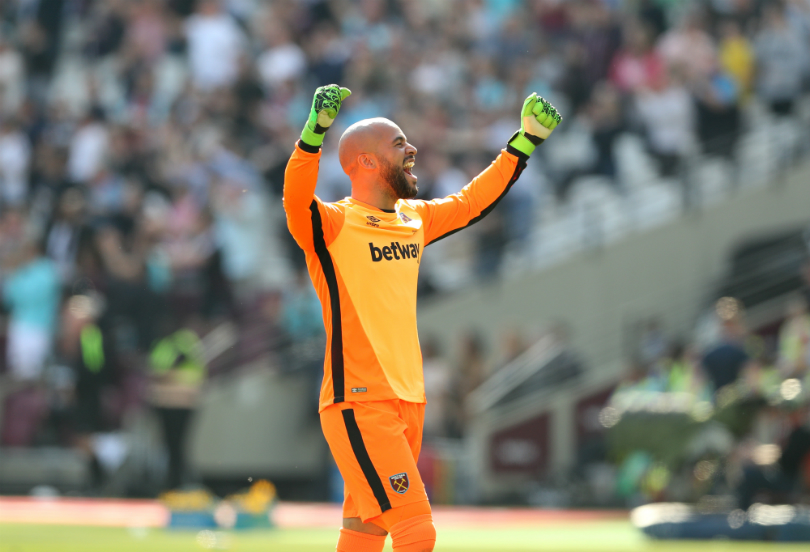
West Ham
Pretending that sheer survival was the aim at the start of this season would ignore the noise that West Ham made during the summer. Evidently, this was supposed to be the start of a new era. Instead, Saturday’s win over Swansea represented the end of a successful failure - and, in the short term, the bookending of five straight defeats with a nervy, fearful victory.
Still, they got it done. These players have not coped well in London Stadium and so this performance, in their most important game in years (according to Mark Noble), was not backed by traditional home advantage. There’s certainly a point to be made about how meek Swansea were, but this was still West Ham’s players taking responsibility and, ultimately, ensuring that they remain at this level next year.
Bad Weekend
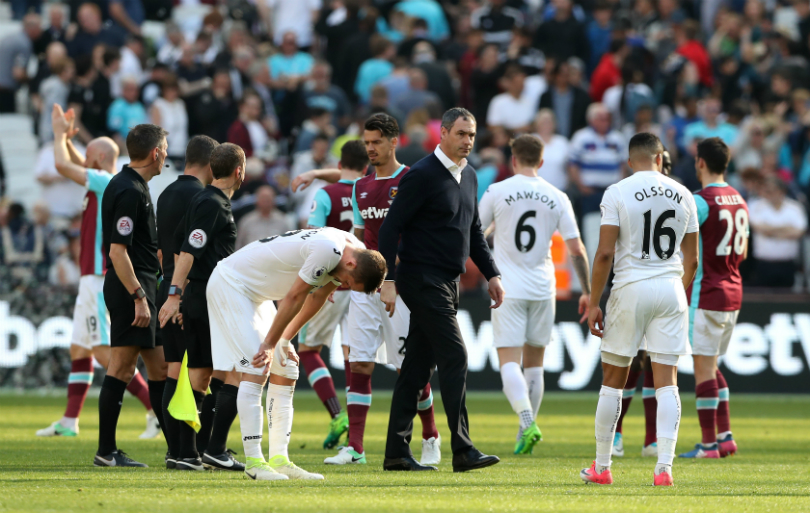
Swansea
If Swansea do succumb to relegation, maybe upon reflection they’ll identify those last nine minutes at home to Spurs as the point at which their back was broken. It certainly looked like it against West Ham: this will billed as a titanic clash, all blood, thunder and desperate energy, and yet Paul Clement’s players barely swung a punch. Instead of building on what they almost achieved on Wednesday night, they regressed back to the anaemic level of performance last seen at the KCOM and Vitality stadiums and, even by their manager’s admission, deserved to take nothing from their trip to Stratford.
Whatever the cause - self-pity, emotional exhaustion, shattered confidence - they need to shed it before the music stops and they find themselves without a seat for next season.
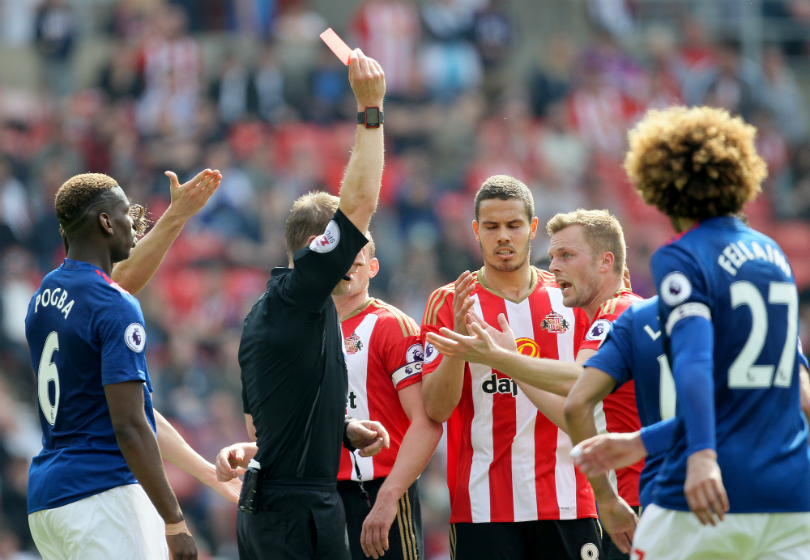
Sebastian Larsson, Sunderland and Craig Pawson
In a word: unnecessary. Larsson paid the price on Sunday for entering a tackle with his studs showing and could, theoretically, have done Ander Herrera some damage.
But while it’s not difficult to understand why Craig Pawson showed the midfielder a red card, it’s debatable whether he really needed to. It may not be an official’s job to protect a game’s competitive balance and, certainly, Larsson invited Pawson to make a decision, but was this really an incident which demanded a sending off? Was it such an egregious example of putting an opponent at risk that, for the sake of precedent, a dismissal was the only action available?
Probably not - and that’s what a red card should represent. The temptation is to be overly conspiratorial about referees and to view them, without exception, as attention-seekers who enjoy making decisions which impact results. That’s likely not the case here, but it was still an unnecessarily draconian response which removed any vague hope Sunderland had of taking points from Manchester United.
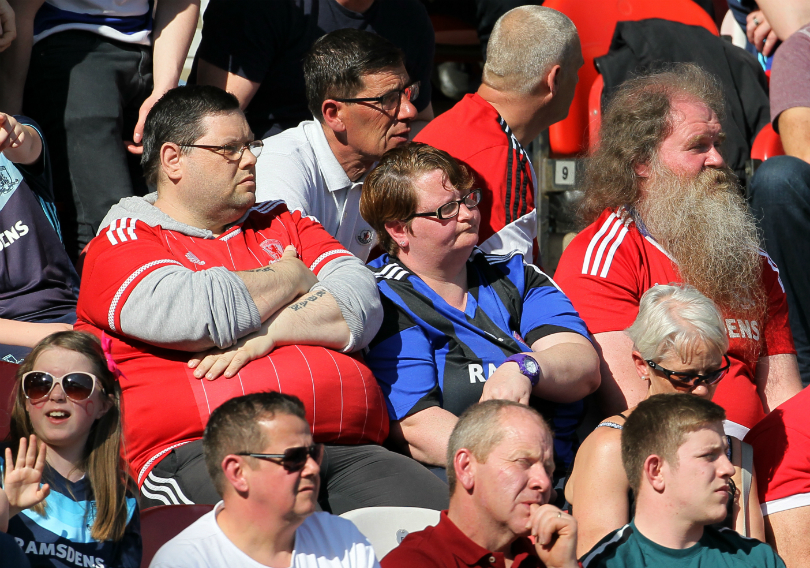
Middlesbrough & Burnley
Are we definitely sure that this game took place? Or, to save everyone trouble, did they just agree beforehand to file a result that nobody would question?
Goalless at the Riverside Stadium, as it was always destined to be. When the history of Middlesbrough’s 2016/17 season is written, it will be with the assertion that, really, it didn’t really need to be like this. While the accepted logic is that their feeble attacking record is the price they had to pay to keep other teams out at the other end, that isn’t necessarily true; somewhere between getting promoted and starting life in the Premier League, that ratio became hopelessly skewed. Boro will go down because they haven’t been brave enough to stay up.
For Burnley, it was less of an immediate worry. Their away record this season is still something which requires attention over the summer, though, because second seasons are traditionally difficult and Turf Moor, which has already started to become less daunting for opponents, is unlikely to provide the same guarantees again.
They are a smart club who won't be dizzied by the size of the broadcasting payment which is now headed for their account, but they must still invest if they are to become more of a threat on the road next year.
Seb Stafford-Bloor is a football writer at Tifo Football and member of the Football Writers' Association. He was formerly a regularly columnist for the FourFourTwo website, covering all aspects of the game, including tactical analysis, reaction pieces, longer-term trends and critiquing the increasingly shady business of football's financial side and authorities' decision-making.
 Join The Club
Join The Club





